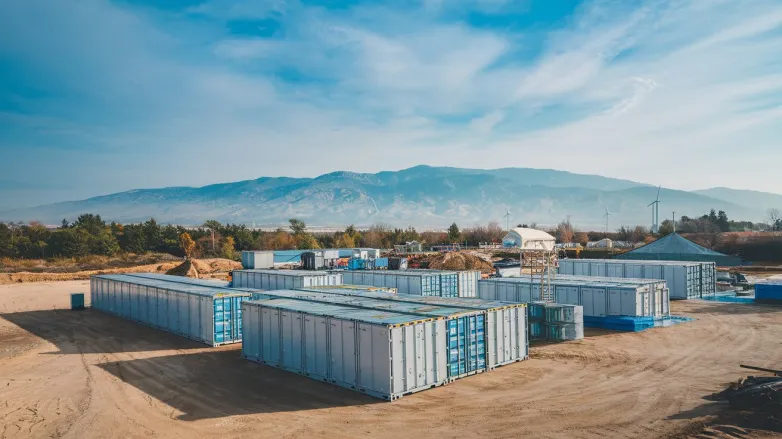ILI Group Gains Consent for 200-MW Battery Project
- ILI Group's 200-MW battery storage project in Scotland unlocks renewable potential, boosting grid stability and supporting the region's green energy future!

ILI Group has received planning consent from the Scottish government for a 200-MW battery energy storage system (BESS) project in Scotland. Located next to the Easterhouse national grid substation near Gartcosh, Glasgow, the Whitehill installation aims to enhance grid balancing services and optimize renewable energy usage. The project has garnered support from Glasgow City Council and North Lanarkshire Council.
ILI Group's CEO, Mark Wilson, emphasized the importance of battery storage in Scotland's energy transition as the region expands its renewable energy capacity. The company is developing a portfolio of over 4.7 GW of energy storage projects, including pumped storage hydro and utility-scale battery systems.
How will ILI Group's new BESS project impact Scotland's renewable energy landscape?
Impact of ILI Group's New BESS Project on Scotland's Renewable Energy Landscape
- Enhanced Grid Stability: The 200-MW BESS project will play a crucial role in stabilizing the electrical grid, particularly as the integration of intermittent renewable sources like wind and solar continues to grow. By providing backup energy during peak demand and absorbing excess energy during low demand, the system will reduce the likelihood of blackouts.
- Facilitation of Renewable Energy Growth: The installation aims to create a more favorable environment for renewable energy producers, making it easier to connect their generation capacity to the grid. This can lead to increased investments in new renewable energy projects, fostering innovation and development within the sector.
- Support for Local Economies: The project is expected to generate job opportunities during both the construction and operational phases. This could stimulate local economies, providing long-term employment prospects related to renewable energy infrastructure.
- Encouragement of Technological Advancements: With ILI Group's focus on developing a diverse energy storage portfolio, the BESS project could promote advancements in battery technology and energy management systems. This might enhance efficiency and reduce costs in energy storage solutions over time.
- Contributing to Net Zero Goals: Scotland has ambitious targets to achieve net zero carbon emissions by 2045. By enhancing the capacity for energy storage, the BESS project will enable a more significant uptake of renewable energy, supporting the nation’s commitment to reducing its carbon footprint.
- Strategic Location Benefits: Situated near the Easterhouse national grid substation, the Whitehill installation is strategically positioned to facilitate efficient energy transfer and distribution. This optimal placement allows for reduced transmission losses and enhanced energy reliability for consumers.
- Long-term Energy Cost Reduction: By leveraging battery storage capabilities, the project has the potential to lower energy costs over time. This can provide consumers with more stable electricity pricing while reducing reliance on fossil fuels during peak demand.
- Strengthening Community Resilience: The energy storage system may also provide backup power during grid outages, contributing to community resilience. This feature can protect essential services and infrastructure, thereby enhancing the overall reliability of the energy system.
- Collaboration with Local Authorities: The support from Glasgow City Council and North Lanarkshire Council signifies a collaborative approach toward renewable energy expansion. Such partnerships may encourage further initiatives and projects aimed at promoting sustainability and environmental stewardship in the region.
- Incentivizing Future Investments: Successful implementation of this project could serve as a model for similar initiatives across Scotland and beyond. Demonstrating the viability and benefits of large-scale battery storage could attract further investment in renewable energy technologies.
- Improving Public Awareness of Renewable Energy: As the BESS project unfolds, it could raise awareness among residents and stakeholders about the importance of battery storage and its role in facilitating a transition to a more sustainable energy system. Educational initiatives and outreach could accompany the project to promote understanding and support for renewable technologies.
Also read

